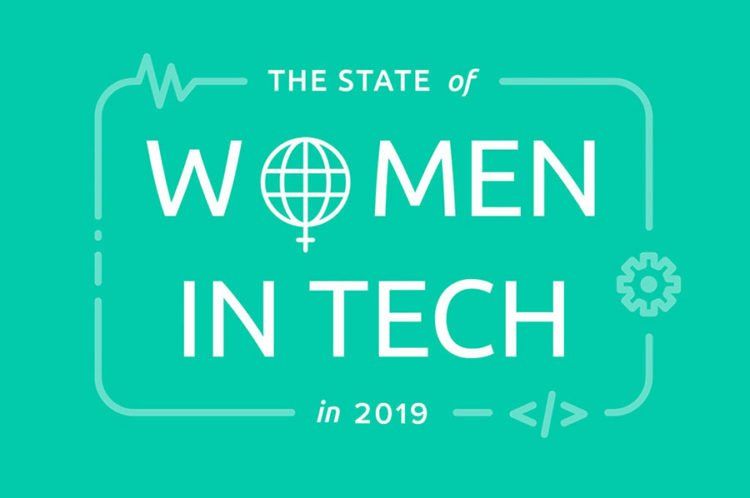Some Female Developers Share What It Means To Be A Woman In Tech

Experiences of Female Developers
Conquering gender Distortion starts with family as well as company culture and ends with society’s bolster.
“I think it’s very important to get more women into computing. My slogan is: Computing is too important to be left to men.” Angela Jonas
Examples:
For 13 years, I worked in the technology industry side by side with men from different cultural backgrounds. I was one of many technology women who were affluent enough to be the first wave of female hiring in automation during the start of the Internet Age. After a career spanning a few countries, with a few large Investment Banks, I quit this career to start a family. Well, not exactly.
The real reason was that I needed to bounce back. I needed to recover my own self-worth. My self-worth slowly chipped away all throughout the years as I dealt with inequalities large as well as small in my workplace. None of my participation was bizarre. Most of the “stronger” women that I knew dealt with these disparities all their lives. Coping with these inequalities became second nature to them. However, I didn’t get used to that.
A few more examples of ingenious inequalities in my workplace were:
Most of the managers that I had in my entire career were male. I remember male colleagues frequently whispering about the female managers who were very successful. They often attributed those female managers’ power to the male managers that they served. The female managers were described as the “executors” of the male manager’s plans. These females were good at “logistics” as well as “operations”.
After work, male colleagues often invited me out to have “team drinks” with them. During these “team drinks”, male colleagues often tried to get young female colleagues drunk in an effort to have a “story” to tell the next day. It was a way to gain leverage by smearing the woman’s reputation at work.
Real Reasons:
Last weekend, 60 Minutes aired a segment on girls in computer science as well as closing the gender gap in tech without referencing any (of the many) women-led efforts. Alexa Gij, Tech Lead Who Code spoke out about this, as well as how the media tends to overlook the contribution of women in tech.
“Contradictory to what was said, introducing girls to computer science earlier on isn’t enough to close the gender gap in tech. Girls need support systems all along the pipeline, as well as tech companies need to do their part to root out harassment as well as discrimination,” Alexa says.
For this post, I wanted to put female developers in the spotlight as well as highlight their experiences in the tech industry. There are many amazing role models out there making progress, big and small, that should be shared and celebrated. Let’s hear what they have to say!

Being a role model
Research done by Stanford’s Computer Science Department concludes the lack of role models is one of the main reasons why women no longer choose to pursue Computer Science.
Perhaps part of the issue here is visibility. Aside from Jennie, there are several notable female developers that have made a significant impact on software development as we know it today, but most developers may not have ever heard of them.
The women we spoke to also name other inspiring female developers, including Rosia Gwen, Project Management who was one of the first programmers in Canada. These role models are not only trailblazers who have shown that they’re integral to this field, they’re also advocates whose stories help empower others.
Whether you’re a junior or senior developer, you can inspire others even if you feel like you haven’t done something that’s unconventional. Being a guide for other women who are in, or interested in, the tech industry can make a small but significant impact.
You can still be a role model for other women, even if you’re not a developer or a woman. Some developers told us that they were inspired by people like Malalai Yousafzai, Melinda and Bill Gates, Michelle Obama, and others.
A few were also greatly inspired by the male figures in their lives, whether it’s their father, spouse, peers, or colleagues in more senior roles.
Failure- “No we are not afraid of it”
A common challenge that’s faced that not only resonates with women developers but also with many developers who are just starting out is the dreaded imposter syndrome when you feel like you are undeserving of your role and have an overall lack of confidence.
As Julia Gutia, software engineer puts it: When I was a developer, particularly a junior, every day is a huge learning experience. You are solving problems and debugging issues and it can get frustrating. In those moments of frustration, it’s really easy to fall into the trap of not feeling good enough, not feeling capable.
Maria Kokia, a Software developer, believes that “overcoming fear and self-doubt is a greater challenge than learning any programming language or skill”. She believes this issue goes back even further and cites Alexa, the Project Manager who said that girls are taught to strive for perfection, rather than encouraged to be brave.
We don’t learn how to deal with failure, which prevents us from tackling new challenges and leads to self-handicapping, Maria.
The key to overcoming this, according to Julius, is to “acknowledge the situation, take a deep breath, realize that everyone has those moments, and be kind to yourself.”
Focusing on your strengths
Being a female developer makes you “automatically memorable”, according to Shina, Python Developer. Figuring out your strengths helps you learn how you can use them to gain a higher sense of confidence and boost your career as a developer.
Do not get afraid of asking questions
When you start your first job as a developer, sometimes you don’t really know what you’re getting into until you start being more hands-on. For Celia, who was previously a software engineer at Google, the size of the organization meant that she had to get comfortable with asking others for help.
If you’re in a project and you feel like something is not clear or not addressed completely, do speak up. More often than not, you’re not the only one feeling this way and clarification will help everybody, Carolina, Mentor.
If you want to know more about Codersera, Click here:
